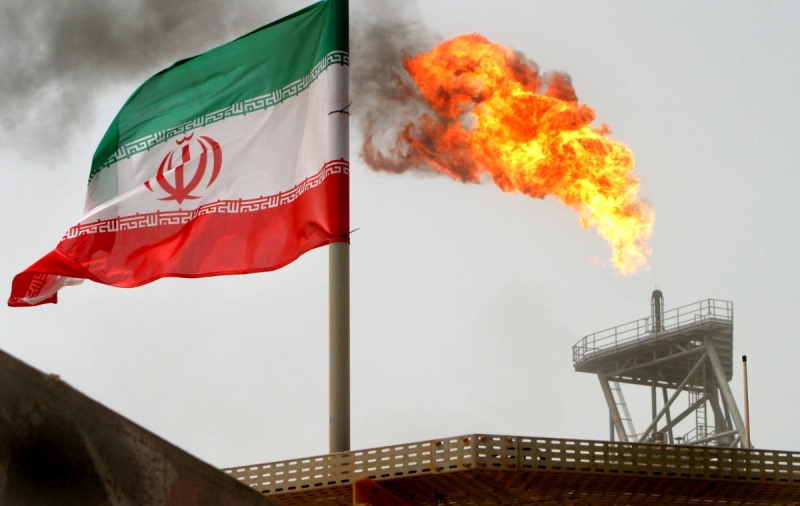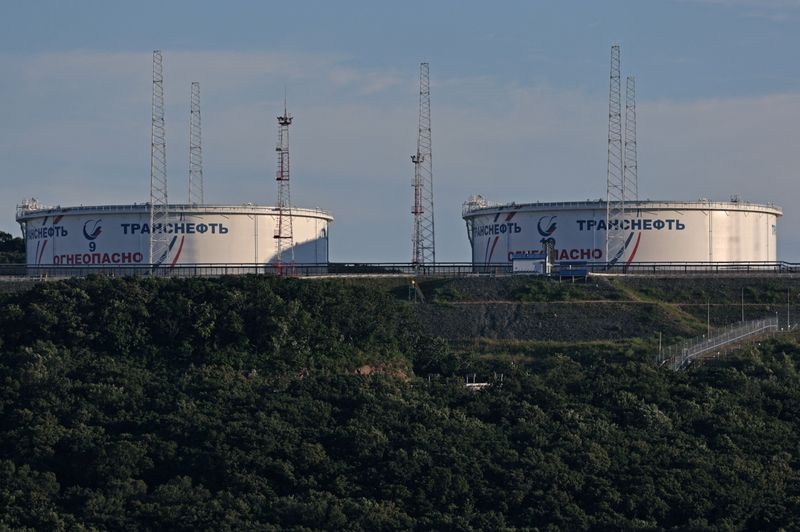
Oil prices (CL=F, BZ=F) jumped about 2.5% after Iran blitzed Israel with several hundred ballistic missiles on Oct. 1. Israel seems certain to retaliate, and Iran could re-retaliate, which basically means the broader Middle East war many have been fearing has arrived.
That pop in oil prices, however, is tiny, and it reflects the market’s belief that Mideast oil will keep flowing even as bombs and missiles thicken the skies. The region’s warring parties may want to kill each other, but it’s in virtually everybody’s interest to prevent oil supply disruptions that could send prices soaring.
That’s especially true in the United States, where some have speculated that a wider Mideast war could be a nasty “October surprise” that could cause oil shortages, send oil and gasoline prices soaring, and damage Vice President Kamala Harris’s election odds. There’s certainly a chance of that, but the more likely outcome is that whatever ultimately happens between Israel, Iran, and nations or factions aligning with either side will not turn out to be an energy war.
The unprecedented Iranian attack on Israel was a response to Israel’s own whittling down of the Hezbollah and Hamas terrorist groups that Iran trains, funds, and uses to do much of its dirty work throughout the Middle East. The July 31 assassination of a top Hamas official in Tehran was likely an Israeli job, and on Sept. 27, Israel killed Hezbollah’s leader in Beirut, Lebanon.
The whole fracas stems from the brutal Hamas attack on Israel last Oct. 7, in which terrorists killed nearly 2,000 Israelis. Israel responded by invading the Gaza Strip, Hamas’s home base, and it’s that ongoing war that seeded the mushrooming battle that’s playing out now. Hostilities in the region are complex and go back decades, but Iran’s theocratic government, with its medieval policy of seeking the extermination of Israel, is a principal instigator.
So Israel and — tacitly — its allies may view the widening of the war as an opportunity to deal the nettlesome Iran a decisive blow that damages or destroys its nuclear weapons program, targets elements of its leadership, or goes after major military infrastructure. Israel could also attack Iranian oil facilities, which would imperil the country’s most important source of hard currency and kneecap its economy.
But it probably won’t. Here are three reasons why.
First, Israel’s most important ally, the United States, is assuredly pressuring Israel’s leadership to leave Iran’s oil facilities alone. Israel obviously doesn’t always listen to its No. 1 patron, but it will on this. In a direct confrontation with Iran, Israel will need US assistance more than ever, including intelligence, defensive military assistance, war materiel, and diplomatic solidarity. Israel, at a minimum, can keep Iranian oil facilities off the target list in exchange.
Israel’s Iron Dome anti-missile system intercepts rockets, as seen from Ashkelon, Israel, October 1, 2024 REUTERS/Amir Cohen (REUTERS / Reuters)
Iran supplies about 1.5% of the world’s oil, which may not sound like a lot. But oil prices can move sharply on marginal changes in supply, and if Iran’s oil disappeared from the market, prices would jump way more than that puny 2.5% bump, which is based on fears of disruption, not actual disruption.
If Iran could no longer export oil, it would have a much more powerful incentive to strike at other producers by trying to close the Strait of Hormuz, which its navy could probably do for a period of time. About 21% of the world’s oil flows through the strait, and anything that threatened that supply would send oil prices well above $100 per barrel, and maybe above $150. US gasoline prices would hit $5 per gallon, and maybe $6 or $7. It should go without saying that the Biden administration would do just about anything to prevent that from happening in the home stretch of a tight presidential election in which Harris is basically running on the incumbent party’s record.
Another powerful factor in the Middle East is China, which buys most of Iran’s oil and is forging partnerships with many oil producers in the region. China is a net importer of oil that wants to keep prices low. It buys Iranian (and Russian) oil below market prices because it doesn’t comply with Western sanctions meant to punish both countries for hostile actions. And it wants to keep that cheap oil coming.
China may not — yet — be as powerful a presence in the Middle East as the United States is, but it has influence over Iran because it provides the bulk of its badly needed oil revenue. China can’t tell Israel what to attack or spare, but it can make clear to Iran that any action threatening any nation’s oil supplies is simply unacceptable.
Other oil producers in the region, such as Saudi Arabia and the United Arab Emirates, don’t really want an oil shock, either. Sure, they benefit when prices rise and their revenues go up. But the instability carries risk and could threaten other priorities. Saudi Arabia, for instance, still wants to normalize trade and economic relations with Israel, which is also a priority of the Biden administration.
That might be unlikely amid the current conflagration, but waiting for a more opportune time would still be a lot better than trying to ride out an oil war. Just five years ago, Iran attacked Saudi oil facilities, one of the biggest short-term supply disruptions in history. The two countries patched up their differences a year ago — with Chinese mediation — suggesting neither sees energy wars as productive.
Predictions about the Middle East often border on folly, given the region’s volatile and violent history. Yet the oil has flowed through numerous wars and countless skirmishes, and that’s the likely outcome this time as well. If only peace were as readily attainable as oil.
Rick Newman is a senior columnist for Yahoo Finance. Follow him on X at @rickjnewman.



